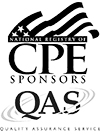Government Fraud

Overview
Online
Description
Fraud costs governments around the world trillions of dollars in damages each year and it costs the public, too. Millions of people, thousands of organizations and all government entities are potential victims of every conceivable kind of swindle, and everyone pays for fraud in direct and indirect ways. Will all of the abuse related to public-sector expenditures, fraud examiners must understand why spending is vulnerable to fraud and take steps to combat this form of abuse.
Additionally, because fraud prevention is less expensive and more effective than detection, the government and the public must implement proactive measures and increase vigilance to protect against government fraud. This course provides information relating to government fraud generally as well as information specific to the United States federal government. This course also explores key United States statutes (such as the Major Fraud Act and the Civil False Claims Act) and their relationship to fraud investigation and prosecution.
Prerequisites
None
You Will Learn How To:
Relate key information about the different types of public corruption schemes, identify red flags and risk factors of corruption, and compare the various laws and instruments designed to combat public corruption.
Recognize the characteristics and common schemes of frauds involving false statements and claims to government agencies.
Identify the most common procurement fraud schemes.
Recognize the various types of frauds that target and challenge the integrity of government entitlement programs.
Differentiate between tax evasion and tax avoidance and recognize key characteristics of common tax evasion schemes.
Recall knowledge about counterfeit documents, conspiracy schemes, grant fraud, and asset misappropriation schemes that target government entities.
Choose measures to prevent and detect the different types of fraud schemes that target government entities.
Distinguish qui tam actions and whistleblower statutes.
Table of Contents
| Lesson 1 | Introduction |
|---|---|
| Lesson 2 | Public Corruption |
| Lesson 3 | False Claims and Statements |
| Lesson 4 | Procurement Fraud |
| Lesson 5 | Collusion Among Contractors |
| Lesson 6 | Collusion Between Contractors and Employees |
| Lesson 7 | Performance Schemes |
| Lesson 8 | Fraud in Entitlement Programs |
| Lesson 9 | Tax Fraud |
| Lesson 10 | Other Types of Government Fraud |
| Lesson 11 | Fraud Prevention and Deterrence |
| Lesson 12 | Whistleblower Laws |
| Lesson 13 | Conclusion |
CPE Information
| CPE Credit: | 4 |
|---|---|
| NASBA Information: | Auditing (Governmental) |
| Advance Preparation: | None |
| Last Updated: | December 2024 |
| Delivery Method: | QAS Self-Study |
Policies
CPE Credit
Please note: To be eligible for CPE credit, you must complete the final exam within one year of purchase date. You may only claim CPE credit for a course once.
ACFE Online Self-Study Courses
Features:
- 24/7 access to courses through your Internet browser
- Save time and quickly earn CPE credits with instant access, grading and printable certificate
- The flexibility to start or stop a course and pick-up right where you left off
- No additional shipping fees
Learn More about accessing your online self-study course
Learn More about online self-study courses and their features
System Requirements:
- Internet access: High-speed connection recommended
- Speakers required for video sound
 The Association of Certified Fraud Examiners, Inc. is registered with the National Association of State Boards of Accountancy (NASBA) as a sponsor of continuing professional education on the National Registry of CPE Sponsors. State boards of accountancy have final authority on the acceptance of individual courses for CPE credit. Complaints regarding registered sponsors may be submitted to the National Registry of CPE Sponsors through its website: www.nasbaregistry.org/.
The Association of Certified Fraud Examiners, Inc. is registered with the National Association of State Boards of Accountancy (NASBA) as a sponsor of continuing professional education on the National Registry of CPE Sponsors. State boards of accountancy have final authority on the acceptance of individual courses for CPE credit. Complaints regarding registered sponsors may be submitted to the National Registry of CPE Sponsors through its website: www.nasbaregistry.org/.
Ordering and Returns
Satisfaction Guarantee
If you are not 100% satisfied with any ACFE product, you may return it to us, provided it is in excellent condition, for a full refund of the item minus the cost of shipping. Toolkits and bundles may only be returned as a complete set.
Ordering & Returns Policy

